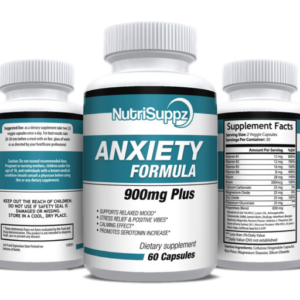14 Jun A Journey Through the Fog: My Battle with Anxiety
A Journey Through the Fog: My Battle with Anxiety
I remember the first time anxiety gripped me like a vise. I was sitting in a crowded lecture hall, halfway through my sophomore year of college, when suddenly, without warning, my heart started to race. My chest tightened, my vision blurred, and it felt like the room was closing in on me. I couldn’t breathe. I stumbled out of the hall, gasping for air, convinced I was having a heart attack. It wasn’t until hours later, sitting in the campus health center, that I heard the words “panic attack” for the first time.
For months, I lived in a constant state of fear. The panic attack had come out of nowhere, and I was terrified it would happen again. I stopped going to lectures, avoiding social situations, and retreating into my dorm room where I felt a semblance of control. But the anxiety followed me, a shadow that never left. It was as if my mind had been hijacked, and no amount of logic or reasoning could convince my body that it was safe.
Sleep became elusive. Each night, I lay awake, my thoughts racing with worst-case scenarios. My grades slipped, my relationships strained, and the person I used to be—a confident, outgoing student—seemed like a distant memory. The more I tried to fight the anxiety, the stronger it became, feeding off my resistance and growing into an insurmountable monster.
One particularly bad night, after hours of tossing and turning, I decided I couldn’t keep going like this. I reached out to the campus counseling services, a step that felt both terrifying and hopeful. Admitting I needed help was one of the hardest things I’ve ever done, but it was also the beginning of my journey towards healing.
My counselor introduced me to Cognitive Behavioral Therapy (CBT), a process that involved identifying and challenging the negative thought patterns that fueled my anxiety. It was grueling work, facing the thoughts that had haunted me for so long, but slowly, I began to see a glimmer of light. I learned breathing exercises and mindfulness techniques that helped me stay grounded in the present moment. Each small victory—a day without a panic attack, a night of restful sleep—felt monumental.
I also started to lean on my friends and family, something I had been reluctant to do out of fear of being a burden. To my surprise, they were more supportive and understanding than I could have imagined. Sharing my struggles not only lightened my load but also deepened my connections with those around me.
One of the most significant breakthroughs came when I decided to join a support group for students dealing with anxiety. Hearing others’ stories, so similar to my own, was incredibly validating. I realized I wasn’t alone; there were others who understood the fear and isolation that anxiety brings. Together, we shared coping strategies, celebrated successes, and offered comfort during setbacks.
It’s been a few years since that first panic attack, and while anxiety is still a part of my life, it no longer controls me. I’ve learned to recognize the early signs and have built a toolkit of strategies to manage it. I practice yoga, maintain a healthy lifestyle, and make sure to take time for self-care. Most importantly, I’m kinder to myself, accepting that it’s okay to have bad days and that progress isn’t always linear.
Looking back, I see my journey with anxiety as a testament to resilience and the power of seeking help. It taught me that vulnerability is not a weakness but a strength, and that reaching out for support can be a lifeline. Today, I’m more self-aware and compassionate, both towards myself and others facing similar struggles.
Anxiety may still cast a shadow, but I no longer live in fear of it. I’ve emerged from the fog stronger, more resilient, and with a deeper understanding of myself. And while the journey was fraught with challenges, it ultimately led me to a place of greater peace and acceptance.


No Comments